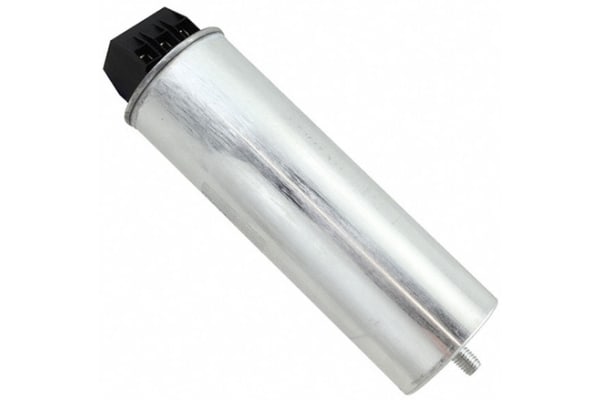Power Factor Correction Capacitors
The power factor of a circuit, for individual equipment or for a larger power supply, is the measure used to determine the efficiency of the circuit. It is calculated using the real power (kW) and reactive power (kVAr) of a circuit, with the real power being that which is actually used to complete the task at hand and the reactive power being that which does not contribute to the task. The higher the power factor (between 0 and 1), the more efficient the circuit, with anything above 0.95 being considered highly efficient. For larger-scale circuits with a higher power load, such as a building’s power supply, having a higher power factor results in lower excess charges from power suppliers.What are power factor correction capacitors?Power factor correction capacitors are used to increase the power factor of a circuit, bringing the measure closer to 1 and making the system more efficient. Capacitors are used when a lagging current – which is often found in inductive load circuits such as AC induction motors, arc welders, fluorescent lighting and air conditioning – causes the current and voltage to fall out of phase with each other and therefore generates more reactive power. Capacitors correct these variations in current and voltage input, bringing the two back to being closer in phase and improving the efficiency.RS Components offer a range of power factor correction capacitors from industry-leading brands, including EPCOS, KEMET, Vishay and Wurth Elektronik.Why is power factor correction important?Power factor correction has many benefits on both the electrical systems being supplied and the bill payers. By bringing the efficiency up and reducing reactive power, grid instability can be reduced, as can costs. By reducing the reactive power generated in a system or piece of equipment, general power consumption will also decrease and this in turn leads to cost savings. Electricity bills for larger companies and factories can include additional charges, including capacitor charges and reactive power charges, which will also come down when power factor correction equipment is applied.



